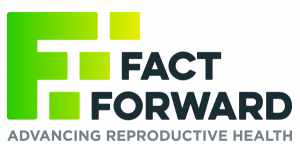Virtual Professional Development is a simulated classroom where teachers can practice teaching student avatars using short scenarios and support from an instructional coach, so they can quickly learn and master the skills they most need to be effective. With upper elementary, middle and high school classrooms, Virtual PD has scenarios for teachers of all grade levels across a wide range of topics aligned with the Professional Learning Standards for Sex Education (PLSSE). You can watch the video here (link is external) to learn more about Virtual PD.
Using the Virtual Professional Development simulated classroom, the educator will practice Managing Personal Boundaries and Disclosure When Teaching Sex Ed with the student avatars. In this VPD scenario, the educator will introduce the topic of reproduction and pregnancy with an established classroom community. In this simulation with the five students, the educator will ask students to talk with a partner about myths they’ve heard related to pregnancy prevention and then have each student report back sharing one myth with the class. The participant will need to demonstrate the ability to maintain appropriate professional boundaries when teaching about sexuality.




